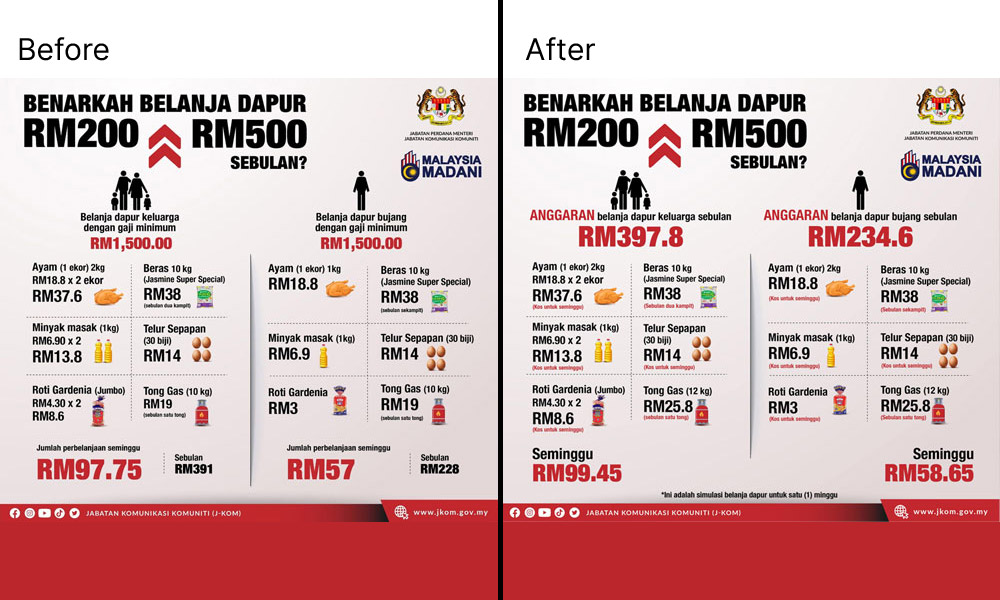Community Communications Department (J-Kom) director-general Mohammad Agus Yusoff has come to the defence of a widely panned infographic on the cost of groceries.
Agus said the J-Kom infographic - which had claimed that groceries for a family of four can be worth under RM400 a month - was actually aimed at combating "false claims".
"The simulation was done based on six main items which are said to have gone up in price drastically, causing spending (on groceries) to increase from RM200 to RM500 a month," he told Malaysiakini.
The items listed on the infographic were whole chickens, eggs, rice, oil, bread and cooking gas.
Agus said J-Kom had done checks on said items - by referring to the Domestic Trade and Cost of Living Ministry, doing their own inspection and also speaking to consumers.
"J-Kom only referred to the prices of those six items, whether it's controlled, subsidised, or not, to be compared to unfounded allegations on its prices increasing," he added.

In the first iteration of the infographic yesterday, J-Kom claimed that a family of four with a minimum household income is expected to spend RM391 per month on groceries.
It then listed prices for the six items - namely two whole chickens for RM37.60, two bags of 10kg rice (RM38 per bag, a month), two bottles of cooking oil (RM13.80 per month), a carton of 30 eggs (RM14), two jumbo loaves of bread (RM8.60 per month) and a 10kg gas cylinder (RM19 per month).
Various calculations by Malaysiakini based on the six items, however, failed to add up to the RM391 per month stated by J-Kom.
After being widely panned, the infographic was updated with slightly different pricing and calculations.
In the second iteration, J-Kom said a family of four - now without income stated - can expect to spend RM397.80 on groceries per month.
‘Emotions overtook facts’
When asked for comment, Agus admitted there were some errors in the original posting but they had it fixed - believed to be in reference to the second iteration of the infographic.
He also said that J-Kom tried its best to give accurate explanations to the public, but had the opposite effect when emotions and sentiments overtook facts.
"Based on the simulations, of course, we did not take into account more basic necessities such as fish, vegetables and so on.
"This is as the explanation was referring to the six items only," he claimed.
"I admit there was confusion but we have fixed it. However, emotions and sentiments lead to the wrong perception," he added, stressing that he only wanted to focus on the six items listed in the infographic.
Agus said he understood that the cost of living was a sensitive topic, but assured that the government was doing its best to address the situation. - Mkini




No comments:
Post a Comment
Note: Only a member of this blog may post a comment.